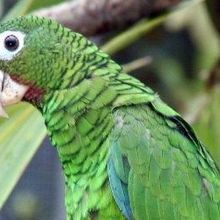Login
Subscribe404
Not Found
Is this what you were looking for?
tag plant breeding evolution
Using Transgenesis to Create Salt-Tolerant Plants
Ricki Lewis | Mar 3, 2002 | 6 min read
Crop agriculture has succeeded because growers have identified and cultivated useful plant variants through selective breeding and environmental alterations. Transgenic technology improves the precision of agriculture, modifying crops in ways that are uniquely useful that probably would not have arisen naturally. Salt tolerance is one such coveted trait. Recent research on promoting salt tolerance through transgenesis focuses on boosting salt-sequestering physiological mechanisms within species,

How Animals and Plants Weather Hurricanes
Ashley Yeager | Oct 6, 2017 | 4 min read
Studies suggest not all critters fare well in extreme weather, though some thrive.
Plant genomics gets $100 million infusion
Charles Choi(cqchoi@nasw.org) | Oct 7, 2003 | 3 min read
New NSF-funded virtual centers created to cultivate speedy collaboration
Toward a “Clickable Plant”
Jane Salodof Macneil | Feb 15, 2004 | 9 min read
By conscious design, plant genomics initiatives have devoted initial resources to new technology development. Part of that money went to developing functional genomics approaches, and part to new sequencing technologies.

Genome Spotlight: Black Abalone (Haliotis cracherodii)
Christie Wilcox, PhD | Jun 23, 2022 | 3 min read
The researchers who constructed the first reference genome for this critically endangered mollusk say it will assist restoration efforts.

Who Sleeps?
The Scientist and Jerome Siegel | Mar 1, 2016 | 10+ min read
Once believed to be unique to birds and mammals, sleep is found across the metazoan kingdom. Some animals, it seems, can’t live without it, though no one knows exactly why.
Genetic Parasites and a Whole Lot More
Barry Palevitz | Oct 15, 2000 | 10+ min read
Photo: Ori Fragman, Hebrew University Hordeum spontaneum, the plant studied for BARE-1 retroelements. With genome sequences arriving almost as regularly as the morning paper, the public's attention is focused on genes--new genes to protect crops against pests; rogue genes that make bacteria resistant to antibiotics; faulty genes that, if fixed, could cure diseases such as muscular dystrophy. What many people don't realize is that genes account for only part of an organism's DNA, and in many c

Behavior Brief
Abby Olena, PhD | Oct 8, 2013 | 5 min read
A round-up of recent discoveries in behavior research
Odd Man Out
Alla Katsnelson | Mar 1, 2010 | 10+ min read
Do fish have personalities?
60 Members Elected to NAS
Barry Palevitz | Jun 25, 2000 | 6 min read
Editor's Note: On May 2, the National Academy of Sciences announced the election of 60 new members and 15 foreign associates from nine countries in recognition of their distinguished and continuing achievements in original research. Nearly half of the new members are life scientists. In this article, The Scientist presents photographs of some of the new members and comments from a few of them on their careers and on past and current research. A full directory of NAS members can be found online a